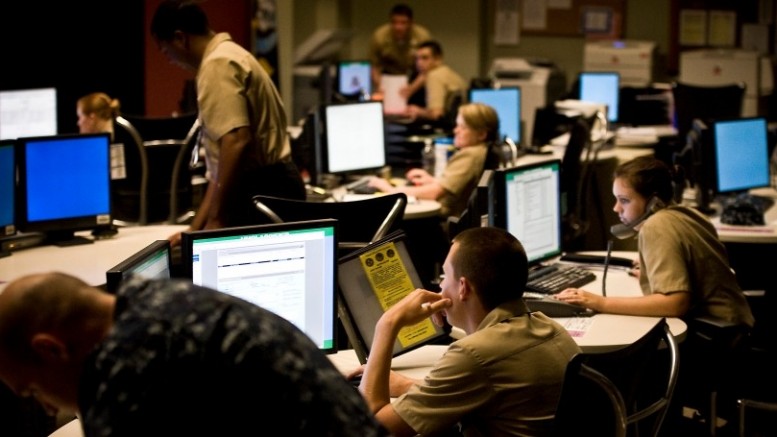(Cyberwar.news) U.S. Cyber Command’s operations against the Islamic State are widening further, with the Pentagon targeting the terrorist group’s finances and command-and-control structure, especially, the Washington Free Beacon reported.
The overall effort to focus on ISIS’ finances began in earnest at least as early as last fall, but last week the Defense Department disclosed additional details about its covert program of using cyber warfare against the group in Syria and Iraq.
At a Senate hearing last Thursday Defense Secretary Ashton Carter and Joint Chiefs of Staff Chairman Gen. Joseph Dunford were questioned about Cyber Command’s activities by some panel members regarding the first-of-its-kind warfare.
“The objectives there are to interrupt ISIL command and control, interrupt its ability to move money around, interrupt its ability to tyrannize and control population, interrupt its ability to recruit externally,” Carter said, using another acronym for the Islamic State. “All of that it does in a cyber-enabled way.”
“The overall effect we’re trying to achieve is virtual isolation,” Dunford added. “And this complements very much our physical actions on the ground, and the particular focus is external operations that might be conducted by ISIL.”
Carter said that U.S. and allied bombing campaigns were being used in combination with cyber attacks in Iraq and Syria.
“And my feeling about that was and is very direct: We’re bombing them, and we’re going to take out their Internet as well,” Carter said.
“In the modern world, that’s necessary to defeat an enemy, and we’ve got to use every tool that we have,” he added.
Neither Pentagon official provided any details in open session of the Senate Armed Services Committee about the operation which reportedly began sometime in January.
Meanwhile, in Baghdad, Air Force Maj. Gen. Peter Gersten, deputy commander for Operations and Intelligence for military operations against ISIS, which is known as Combined Joint Task Force (CJTF)-Operation Inherent Resolve, said last week that the cyberwarfare operations being conducted are starting to produce “effects on the battlespace.” However, he added, “those are cloaked in the highest of secrecy.”
“I can tell you it’s highly coordinated. It has been very effective and Daesh will be definitely in the crosshairs as we bring that capability to bear against them,” he said, as reported by the WFB.
He explained further that much planning went into the operation before it began, namely, the results to be pursued and how to measure success.
“We go to the intelligence community and go to the operations, and we basically see who actually has equity, [then] look at all the stakeholders, bring them to the coordination and development operations board. They brief the package, and then we press forward,” Gertsten said.
Besides being one of the most well-financed terror groups the U.S. military has ever faced, ISIS is also one of the most technologically savvy, utilizing handheld electronic communications and encryption to command and coordinate forces.
That represents a major shift away from using the Internet, which was the preferred method of communication for al Qaeda.
The WFB reported further that Cyber Command chief Adm. Mike Rogers said in testimony April 5 that the U.S. cyber attacks “make it more difficult for ISIL to plan or conduct attacks against the U.S. or our allies from their bases in Iraq and Syria to keep our Service men and women safer as they conduct kinetic operations to degrade, dismantle, and ultimately destroy ISIL.”
More:
- Pentagon’s cyber attacks against ISIS are far more extensive than anyone has admitted
- S. using cyber attacks against ISIS as means of disrupting communications – Glitch.news
- ISIS ‘actively’ seeking tools to launch cyber attacks: DOJ
Cyberwar.news is part of the USA Features Media network.


